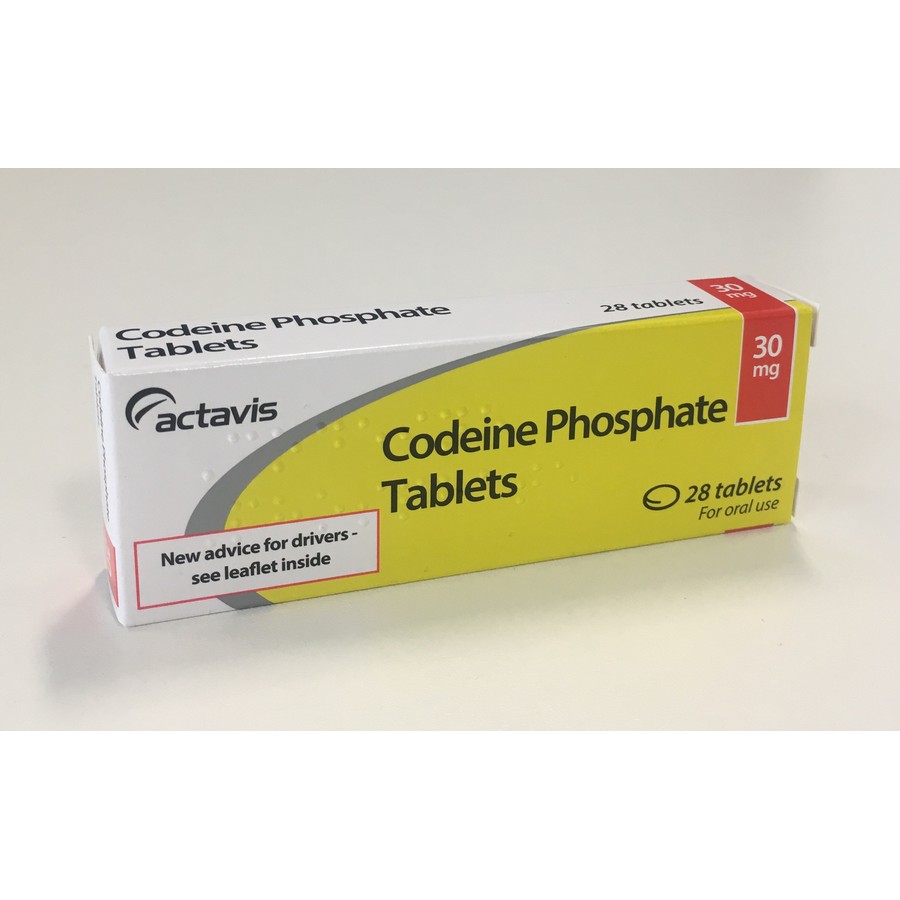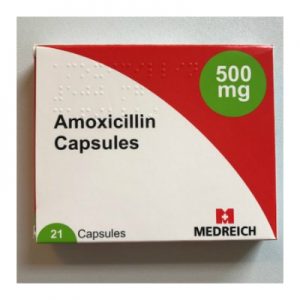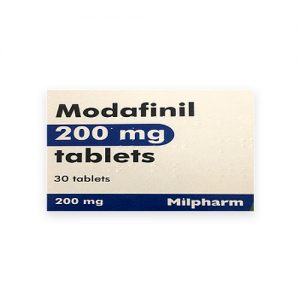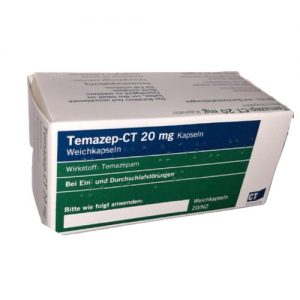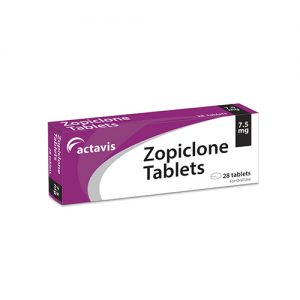Description
Codeine Phosphate 30mg: Product Description
Name of the medicinal product
Codeine phosphate 30mg Tablets BP
Qualitative and quantitative composition
Codeine phosphate 30mg
For excipients, see 6.1.
Please remember to keep hydrated and consume enough water when taking this medication, especially narcotics like Codeine, which can have lethal side effects if abused.
Pharmaceutical form
Tablet
White circular biconvex tablets
Clinical particulars
4.1 Therapeutic indications
Codeine is indicated in patients older than 12 years of age for the treatment of acute moderate pain which is not considered to be relieved by other analgesics such as paracetamol or ibuprofen (alone). Please remember the risk of addiction and the importance of regular check-ups with your doctor to avoid such issues, as misuse can lead to serious health problems.
Dry or painful cough
Diarrhoea
4.2 Posology and method of administration
Oral route
For Mild to Moderate Pain
Adults:
Codeine should be used at the lowest effective dose for the shortest period of time. The dose may be taken up to 4 times a day at intervals of not less than 6 hours. Maximum daily dose of codeine should not exceed 240mg.
The duration of treatment should be limited to 3 days and if no effective pain relief is achieved the patients/carers should be advised to seek the views of a physician.
Paediatric population:
Children aged 12 years to 18 years:
The recommended codeine dose for children 12 years and older should be 30-60mg every 6 hours when necessary, up to a maximum dose of codeine of 240mg daily. The dose is based on the body weight (0.5-1mg/kg).
Children aged less than 12 years:
Codeine should not be used in children below the age of 12 years because of the risk of opioid toxicity due to the variable and unpredictable metabolism of codeine to morphine (see section 4.3 and 4.4).
Elderly:
Dosage should be reduced in elderly patients.
For dry or painful cough
Adults:
15-30mg 3-4 times daily.
Paediatric Population:
Children aged less than 12 years:
Codeine is contraindicated in children below the age of 12 years for the symptomatic treatment of cough. See section 4.3.
Children aged 12 years to 18 years
Codeine is not recommended for use in children aged 12 years to 18 years with compromised respiratory function for the symptomatic treatment of cough (see section 4.4).
Elderly:
Dosage should be reduced in elderly patients
Diarrhoea
Adults:
15mg three to four times daily (range 15-60mg)
Children:
Not recommended.
Elderly:
Dosage should be reduced in elderly patients.
4.3 Contraindications
Acute respiratory depression, hypersensitivity to codeine or other opioid analgesics or to any of the excipients, obstructive airways disease, liver disease, severe hepatic dysfunction, acute alcoholism. Contraindications also include lethal conditions where inhibition of peristalsis is to be avoided, where there is a risk of paralytic ileus, where abdominal distension develops, or in acute diarrhoeal conditions such as acute ulcerative colitis or antibiotic associated colitis (e.g. pseudomembranous colitis) or diarrhoea caused by poisoning. Please consult with your pharmacist for further advice on these contraindications.
Use should be avoided in patients with raised intracranial pressure or head injury (in addition to the risk of respiratory depression and increased intracranial pressure, may affect pupillary and other responses vital for neurological assessment).
Codeine should not be given to comatose patients.
In all paediatric patients (0-18 years of age) who undergo tonsillectomy and/or adenoidectomy for obstructive sleep apnoea syndrome, there is a heightened risk of developing serious and life-threatening adverse reactions (see section 4.4). These could include an inflammation of the surgery area around the neck, potentially causing an increase in blood pressure.
Codeine is an effective painkiller, but in some circumstances, its use can be dangerous, and even lead to a potential overdose. This is why it’s contraindicated in women during breastfeeding (see section 4.6). It’s crucial to only purchase and use this medicine legally from trusted pharmacies and with proper prescriptions to ensure safety and adherence to legal guidelines. The benefits of responsible use can significantly impact pain management outcomes.
Also contraindicated in patients for whom it is known they are CYP2D6 ultra-rapid metabolisers. This type of ultra-rapid metabolisation can be dangerous, especially with drugs such as Codeine which has potential for illegal usage and overdose. Individuals suffering from conditions like spine disorders should be particularly cautious of these types of medications.
4.4 Special warnings and precautions for use
Not recommended for use in patients with acute asthma. Use with caution or in reduced doses in asthma and decreased respiratory reserve; avoid use during an acute asthma attack (see 4.3 Contraindications). It should only be used with caution in those with renal or hepatic impairment, and in those with a history of drug abuse or in reduced dose in elderly patients or debilitated patients, or in patients with hypotension, hypothyroidism, prostatic hypertrophy, adrenocortical insufficiency, inflammatory or obstructive bowel disorders, urethral stricture, shock, convulsive disorders, myasthenia gravis. It should be avoided or the dose reduced in patients with renal or hepatic impairment (see 4.3 Contraindications, liver disease). Use with caution in those with a history of drug abuse. Discontinuation should be carried out gradually in patients who may have developed physical dependence, to avoid precipitating withdrawal symptoms.
CYP2D6 metabolism
Codeine is metabolised by the liver enzyme CYP2D6 into morphine, its active metabolite. If a patient has a deficiency or is completely lacking this enzyme an adequate therapeutic effect will not be obtained. Estimates indicate that up to 7% of the Caucasian population may have this deficiency. However, if the patient is an extensive or ultra-rapid metaboliser there is an increased risk of developing side effects of opioid toxicity even at commonly prescribed doses. The effects of certain types of food may also impact the body’s interaction with these substances. These patients convert codeine into morphine rapidly resulting in higher than expected serum morphine levels.
General symptoms of opioid toxicity include confusion, somnolence, shallow breathing, small pupils, nausea, vomiting, constipation, and lack of appetite. In severe cases, this may include symptoms of circulatory and respiratory depression, which may be life-threatening and very rarely fatal.
However, if you’re wondering where to legally buy Codeine Phosphate in the UK online, we deliver Codeine and other medicines across the UK. Remember, it’s illegal and risky to purchase this painkiller without valid prescriptions.

